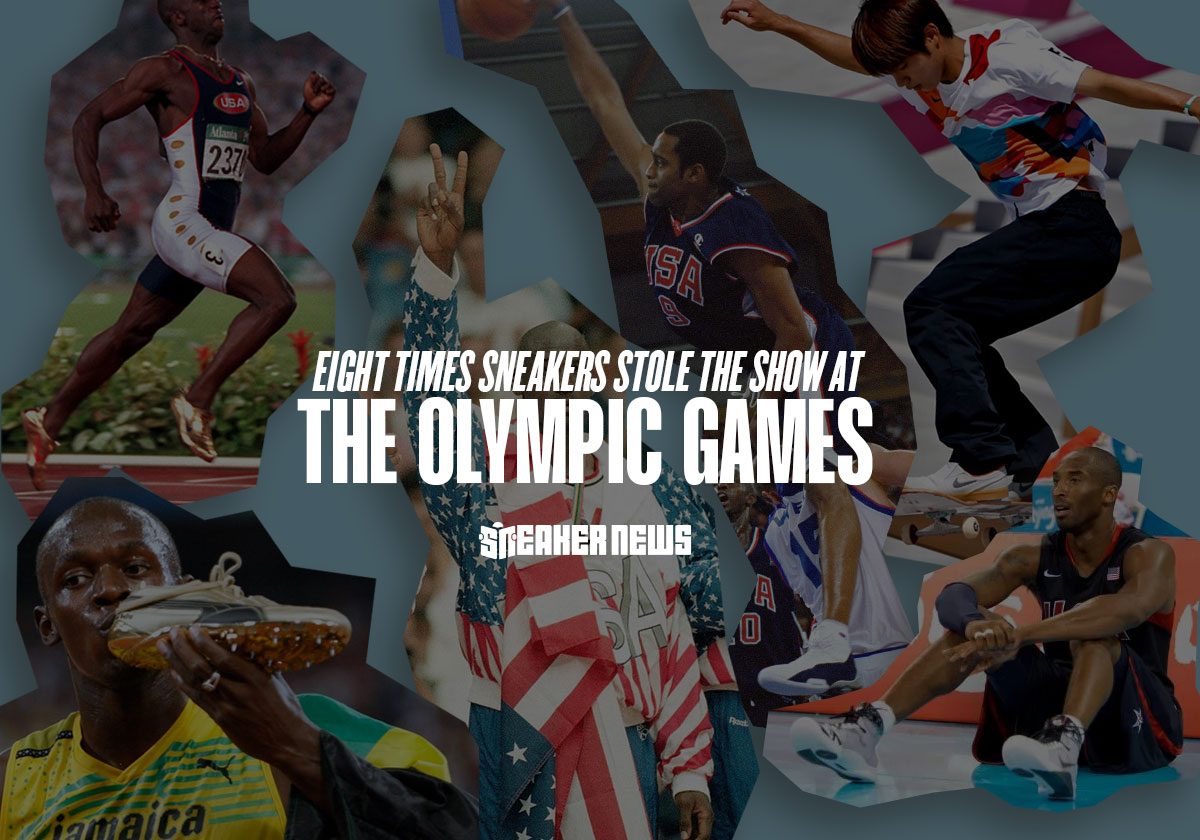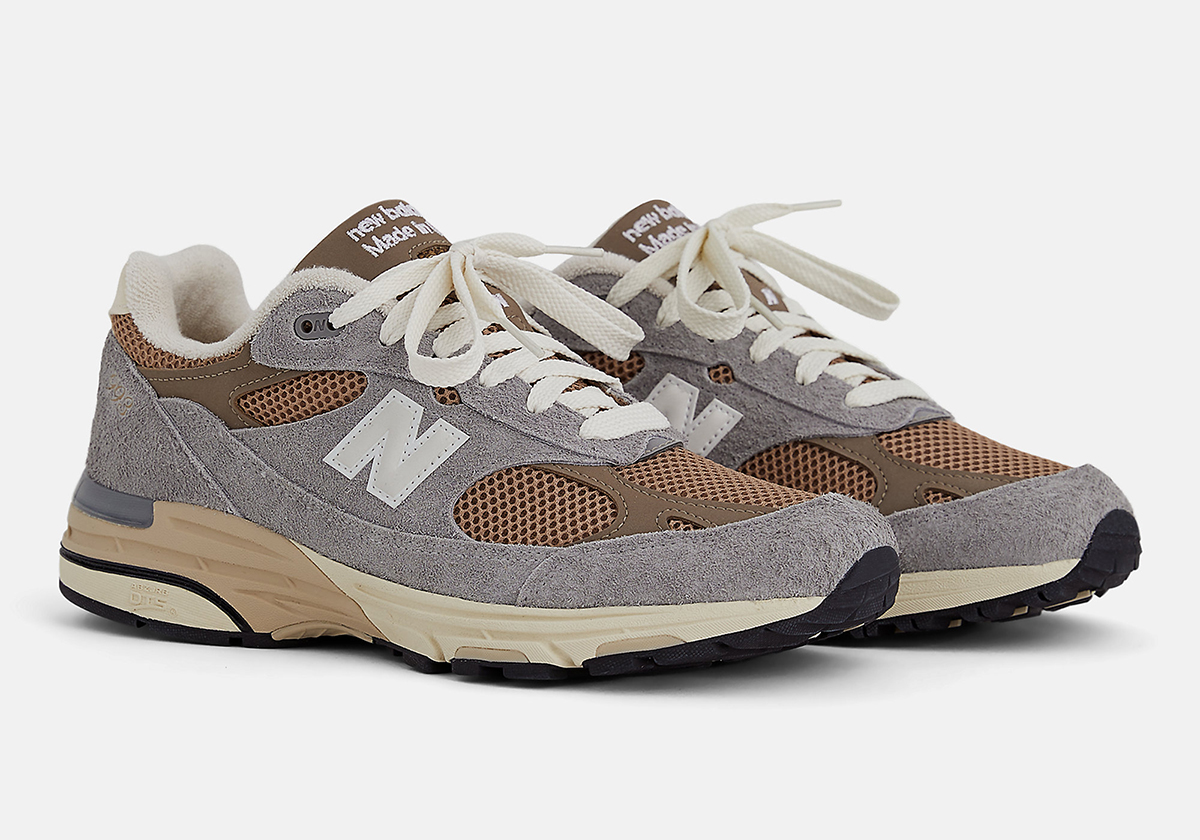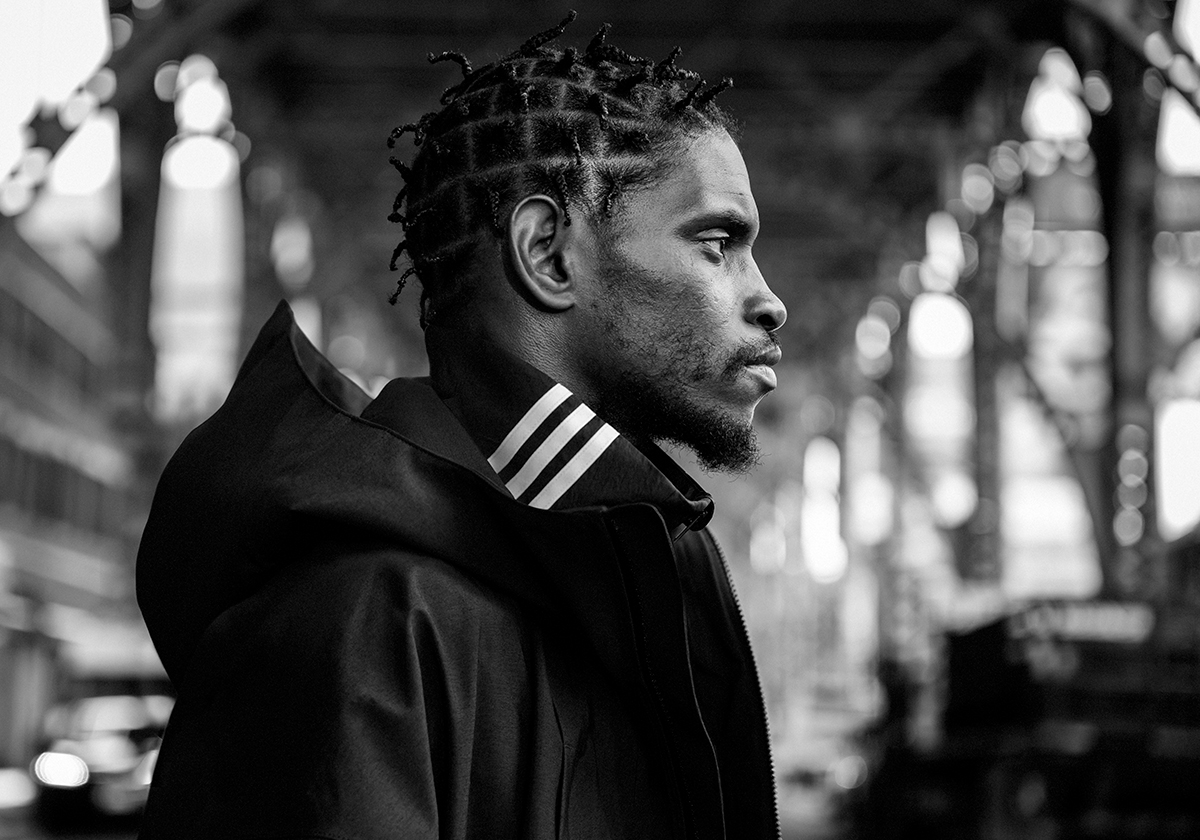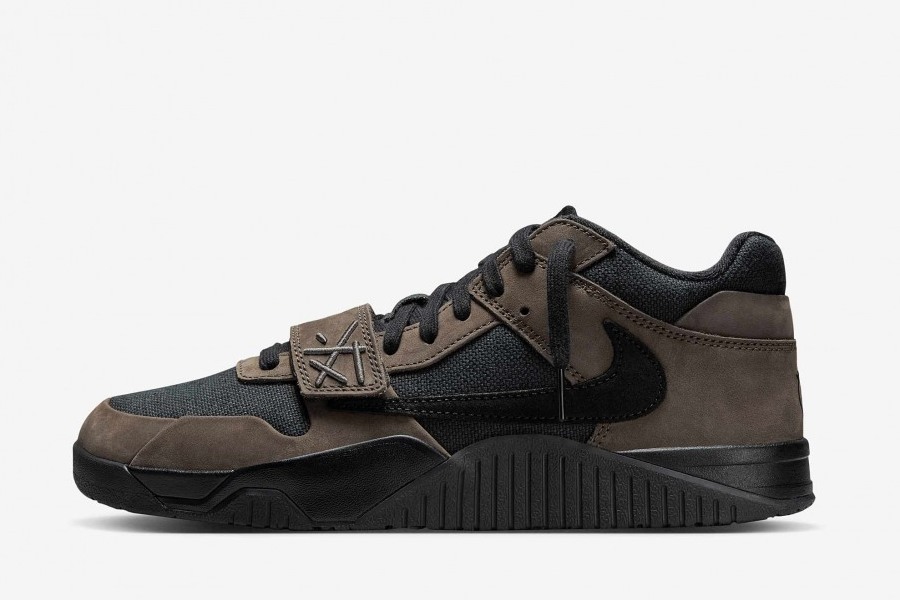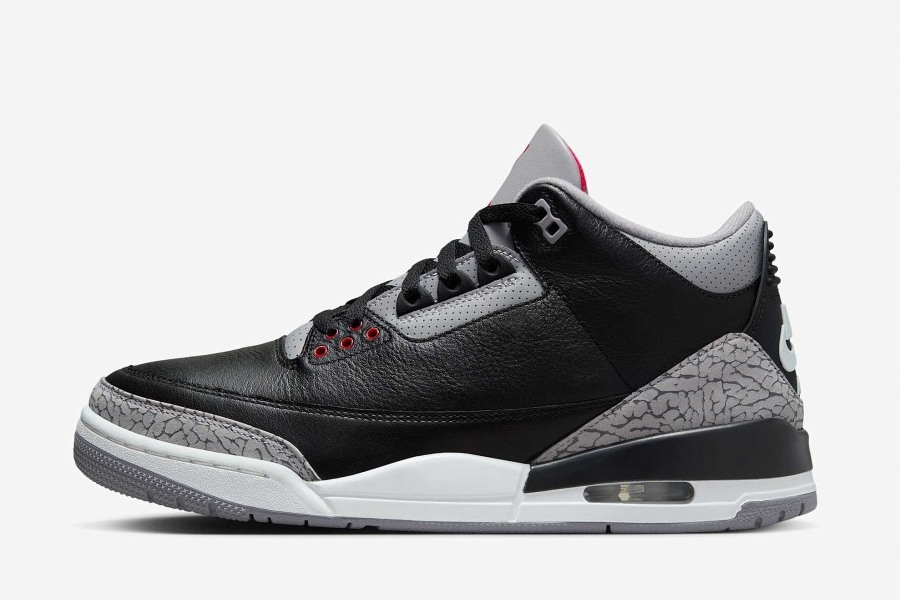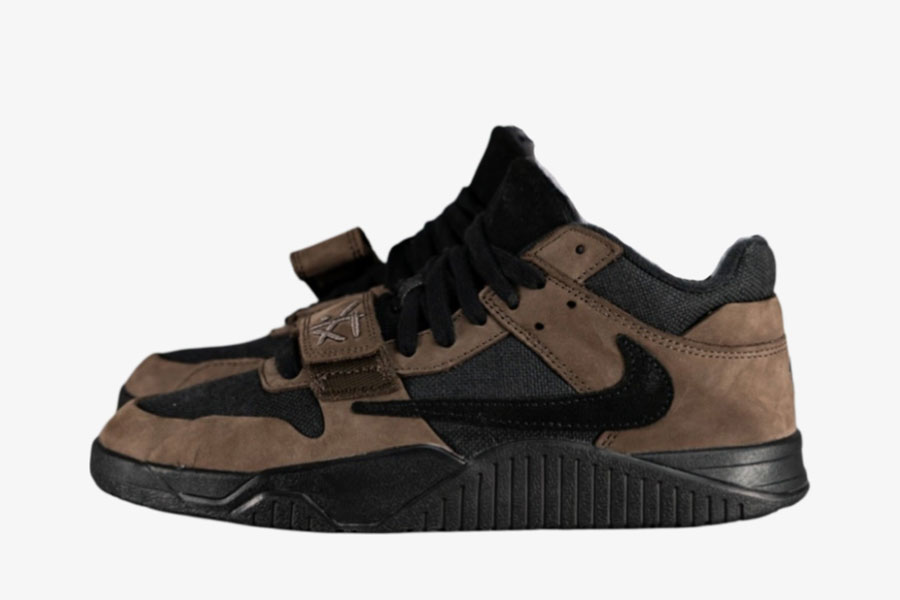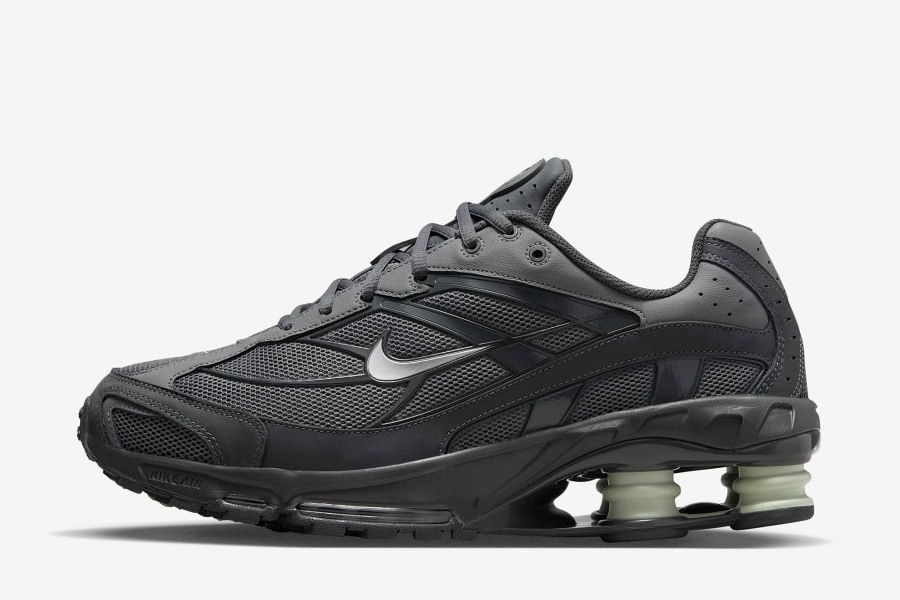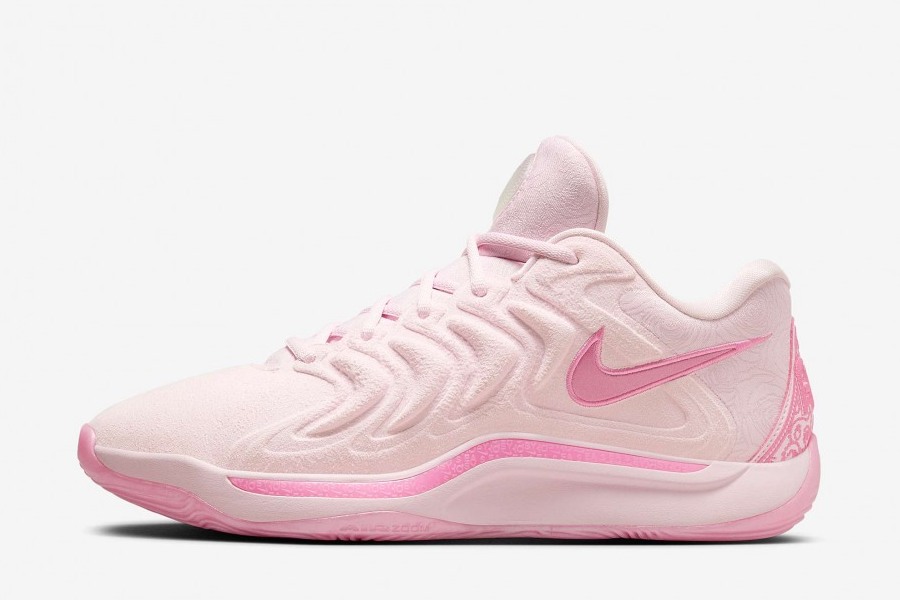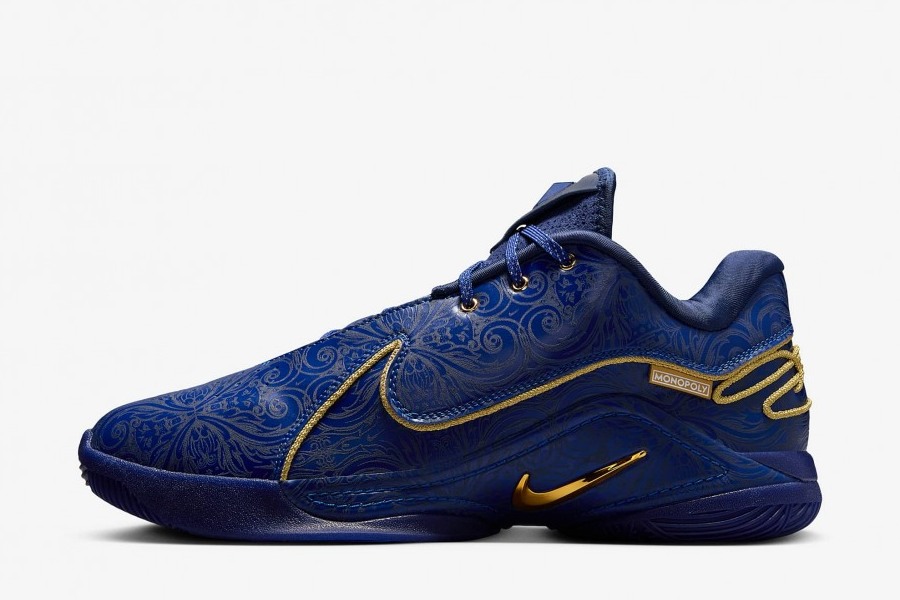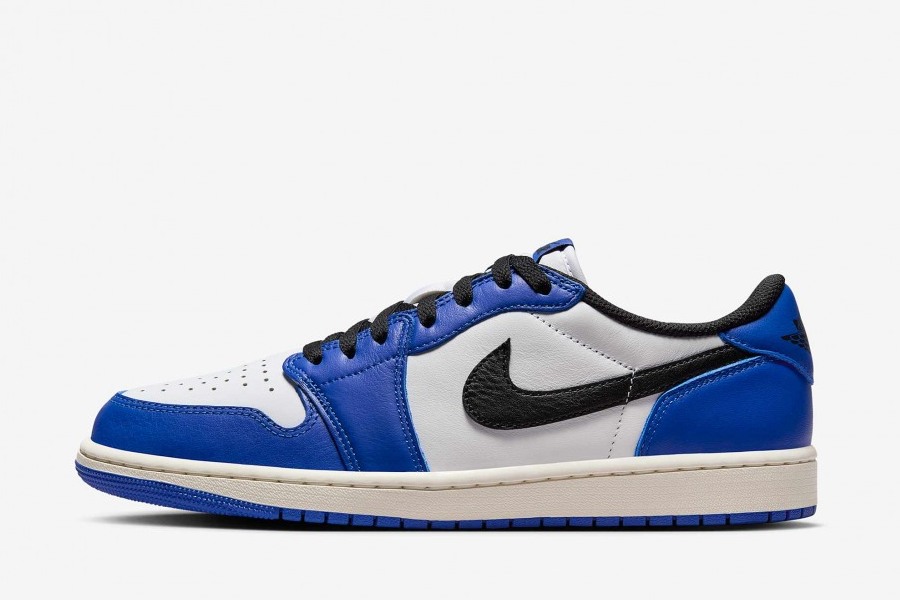The Olympic Games are here, and once again it proves that it’s the single best sporting event in the world. It’s the only competitive stage where superstar athletes can get outshined by obscure phenoms, and given what’s required to even qualify for the Games, the stakes are at its absolute highest.
Athletic brands relish these moments, because it’s been proven time and time again that magical sports moments have both a profound and direct affect on how we as consumers envision a brand. Winning is everything, but doing it style has its own permanent effects.
With the 2024 Paris Games underway, we looked back at those unforgettable times that sneakers made an impact and stole the show. Read through our favorite moments in the Olympics just ahead.
1. The Redeem Team and the Hyperdunk
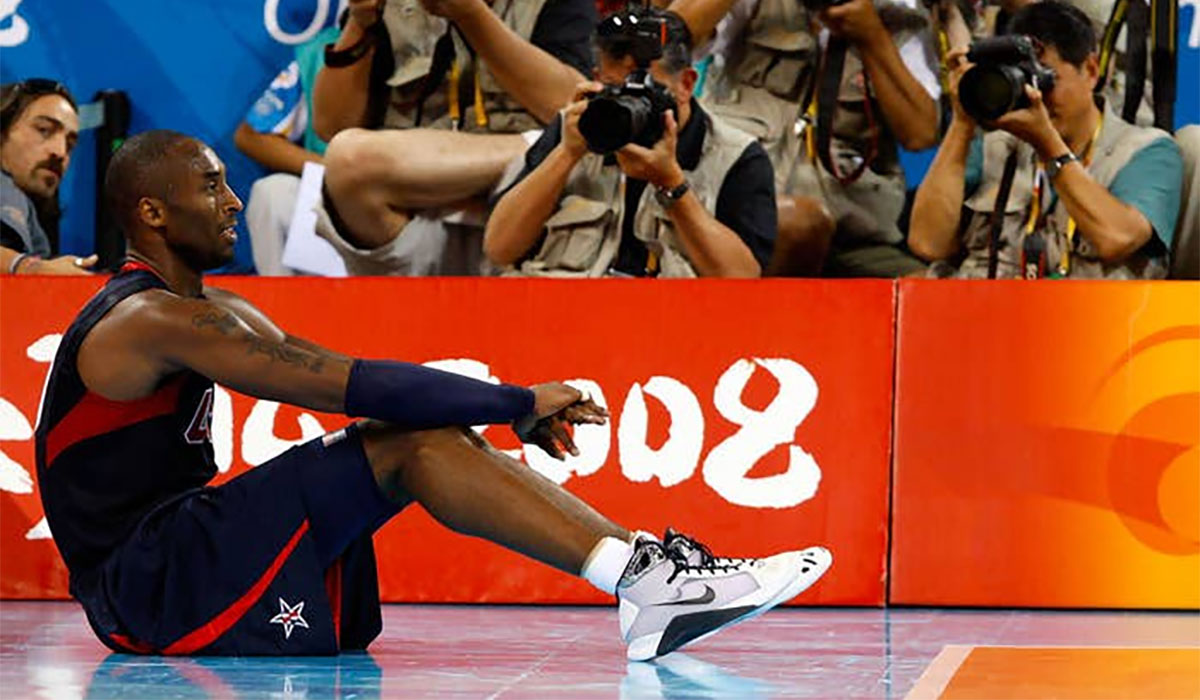
If there was one sneaker born in the 21st century that can hold the mantle of “Best Sneaker Ever”, it’s the Nike Hyperdunk.
This innovative basketball shoe was brought to fruition by Eric Avar, the legendary sneaker architect who was behind the most outstanding basketball sneakers in history. Featuring LunarLite and Flywire technology and loosely based on the mythical Nike Mag from Back To The Future II, the Hyperdunk seized the world’s attention at the Beijing Olympics as it became the official shoe for Nike Basketball athletes representing all countries. Despite dozens of players wearing the Hyperdunk, nobody captured its aura like Kobe Bryant did.
The Redeem Team documentary on Netflix thoroughly covers the influence Kobe Bryant had on the outcome of those Olympics. Many argue that sail the Black Mamba, Team USA would have fallen short of the Gold Medal for the second Games in a row. Luckily for the United States, Kobe Bryant led the way in the Hyperdunk, a sneaker that many hoopers call the greatest sneaker ever.
2. Vince Carter’s “Dunk Of Death” On Frederic Weis
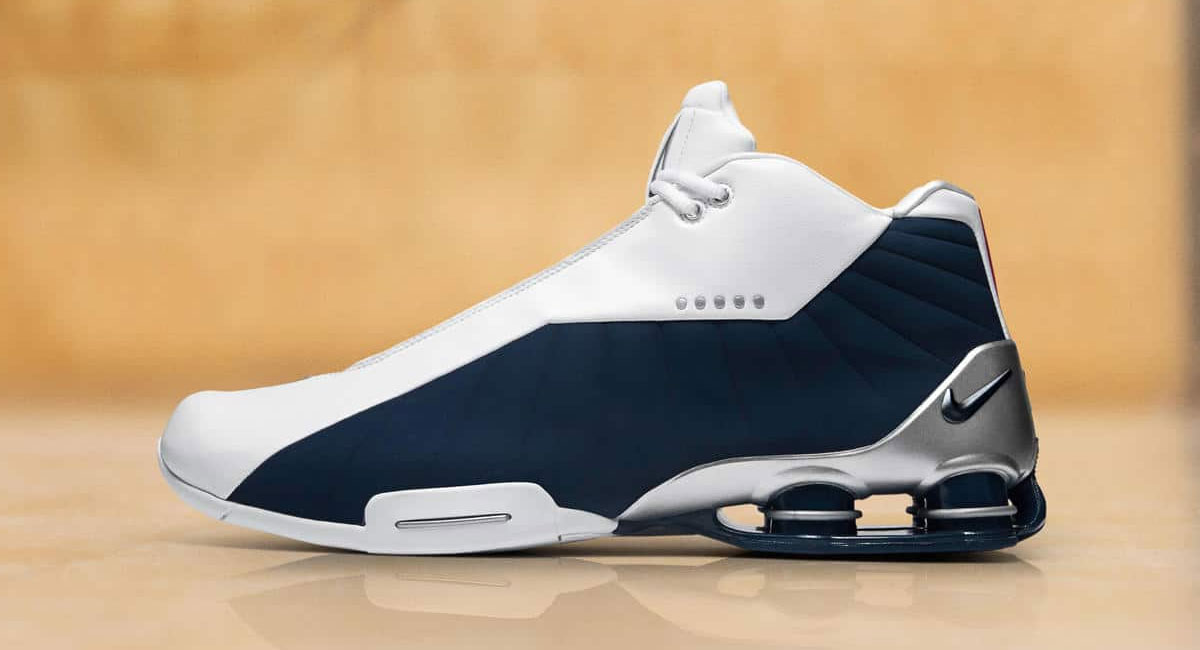
Imagine being on the receiving end of what has since been called “Le dunk de la mort” or “The dunk of death”. Frederic Weis was relatively unknown to American basketball fans before that fateful night of September 25th, 2000, but the French 7-footer actually had his name called on the night of the 1999 NBA Draft. He was selected in the first round by the New York Knicks, and although it’s a common experience to be booed by Knicks fans on draft night, he drew considerable more ire due to hometown hero Ron Artest still being on the board (he would be selected right after by the Chicago Bulls). By the time the 2000 Olympics rolled around, Weis never actually suited up for the Knicks outside of Summer League and never appeared in an NBA game thereafter. Before the dunk of death, he was already considered a bust.
Representing his home country of France for the 2000 Olympics in Sydney, Weis was on the court against Team USA. The play began rather uneventfully; it had appeared that France was about to secure a rebound from a Team USA miss, and both squads were shifting their momentum towards the opposite side of the court. The rebound went long, into the hands of Vince Carter who smoothly exploded to the rim, jumping over Weis in the process. The French center didn’t even have time to raise his hands or to even position his body to draw a charge — it really happened that quickly. Carter leaped, cleared the top of Weis’ head with the help of a gentle snuffing, and viciously slammed the ball wearing the Nike Shox BB4.
It is the greatest in-game dunk in the history of competitive basketball. It’s a sport highlight that just doesn’t get old. It’s also the perfect example of how a moment in sports can have a profound effect on sales; Nike had just debuted Shox, and anything with the gimmicky springs at the heel were in demand. It also helped Weis become a household name in sports, even if it’s a name he’d likely be happy sail.
3. Michael Johnson’s Golden Shoes In Atlanta
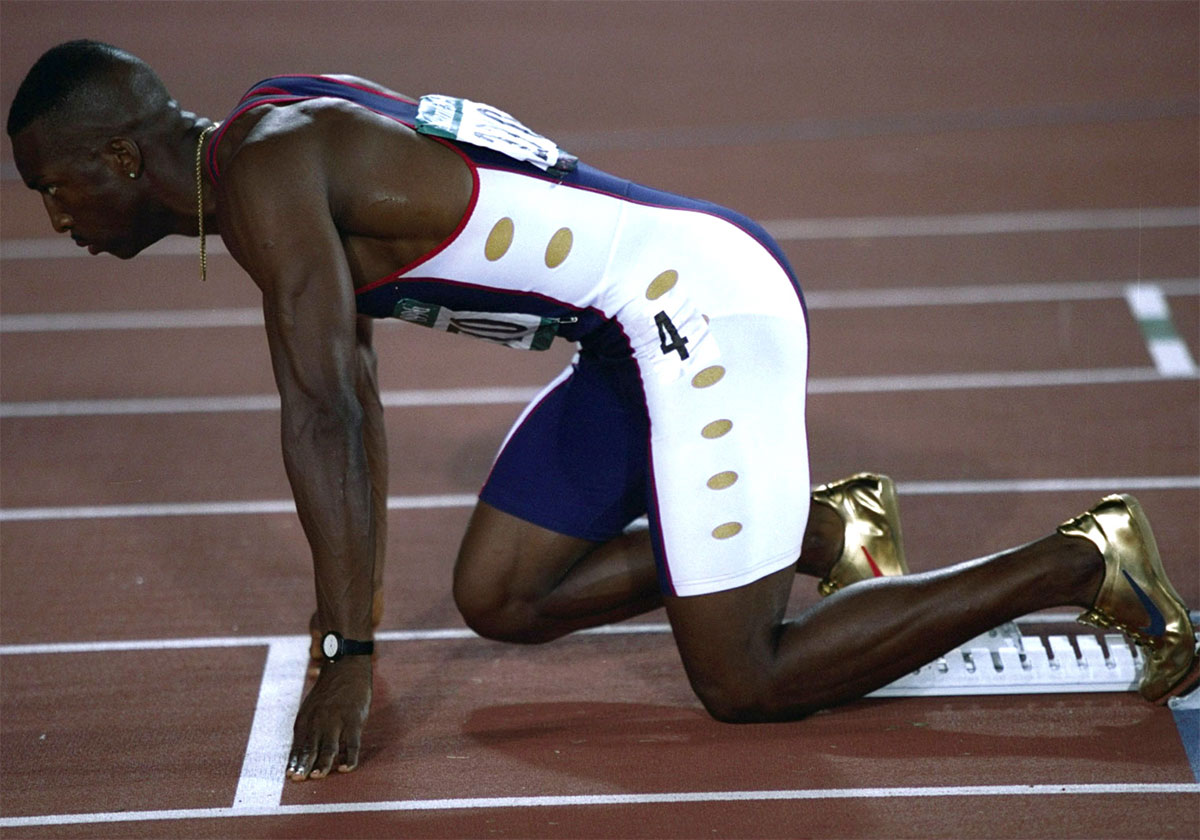
It was gold or bust for Michael Johnson and Nike at the 1996 Olympics in Atlanta. The sportswear giant graced the favorited runner with custom-made track spikes made with Zytel and reportedly weighed as little as 3 ounces per shoe. What made the shoe stand out to the world was the fact that it was wrapped completely in gold, allowing the red and navy Swoosh logos to pop out with ease to anyone watching from the stands or at home on TV. Johnson ended up breaking world records in the 200m and 400m, earning the gold medal in both races. It catapulted the American runner to super-stardom even earning him a cover on Time magazine among other esteemed recognition.
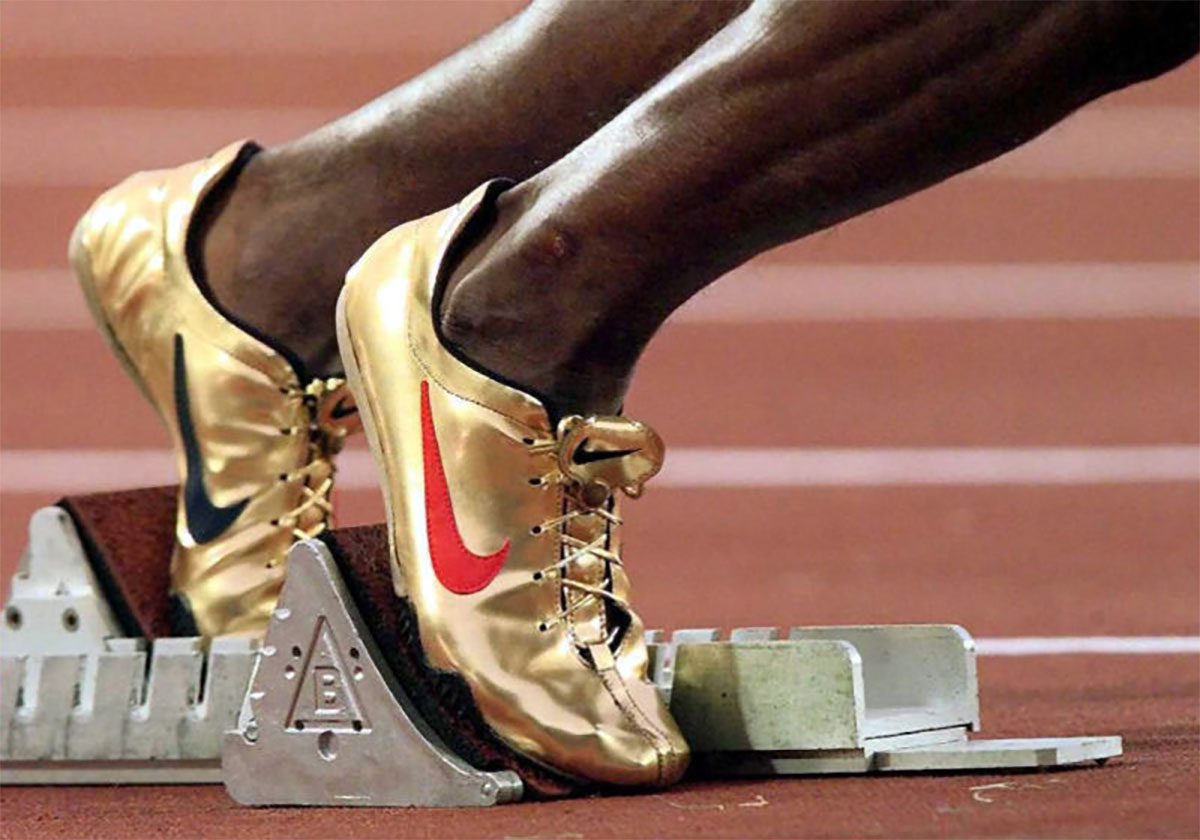
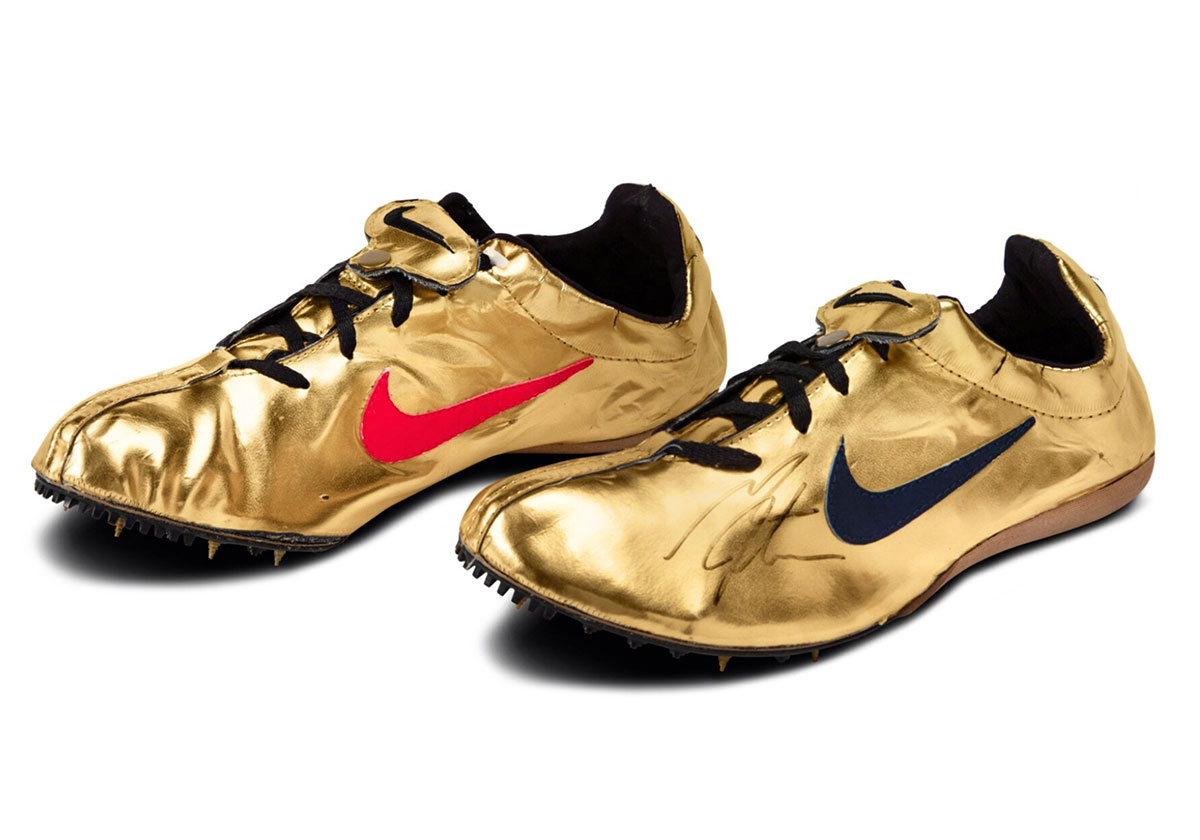
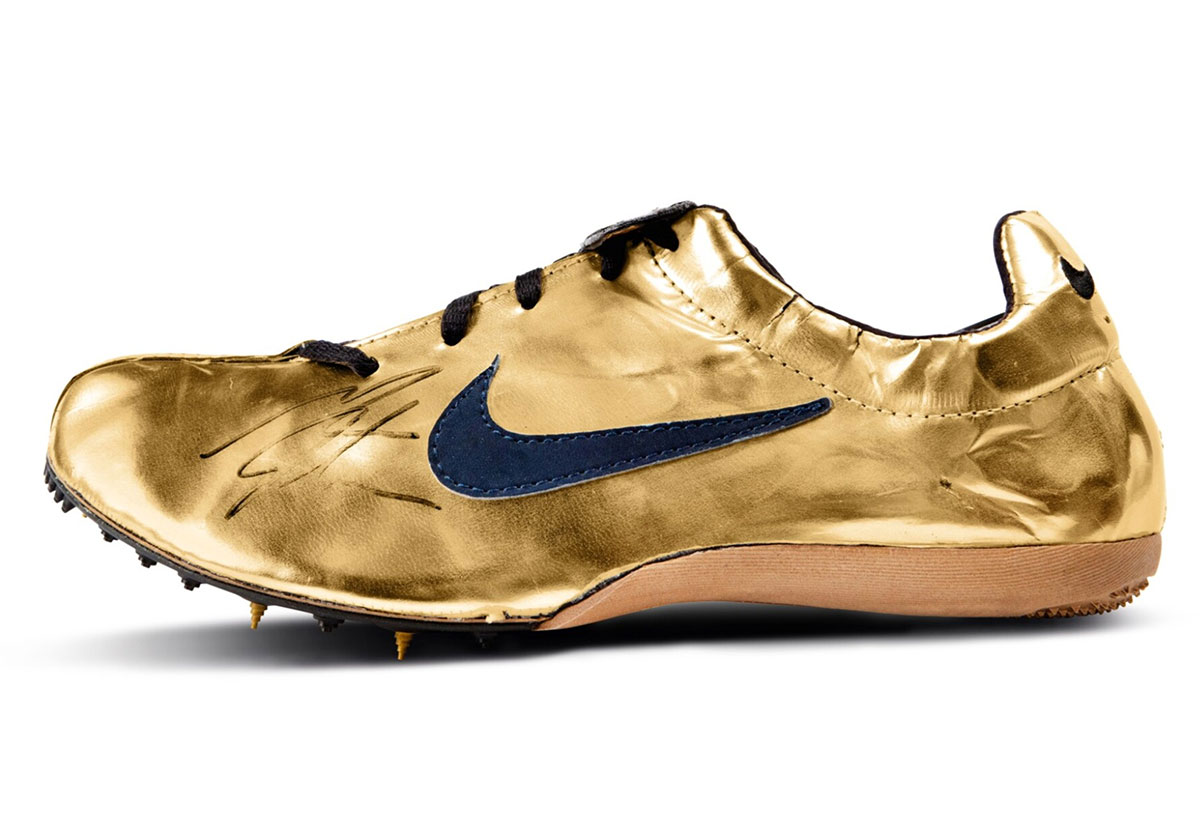
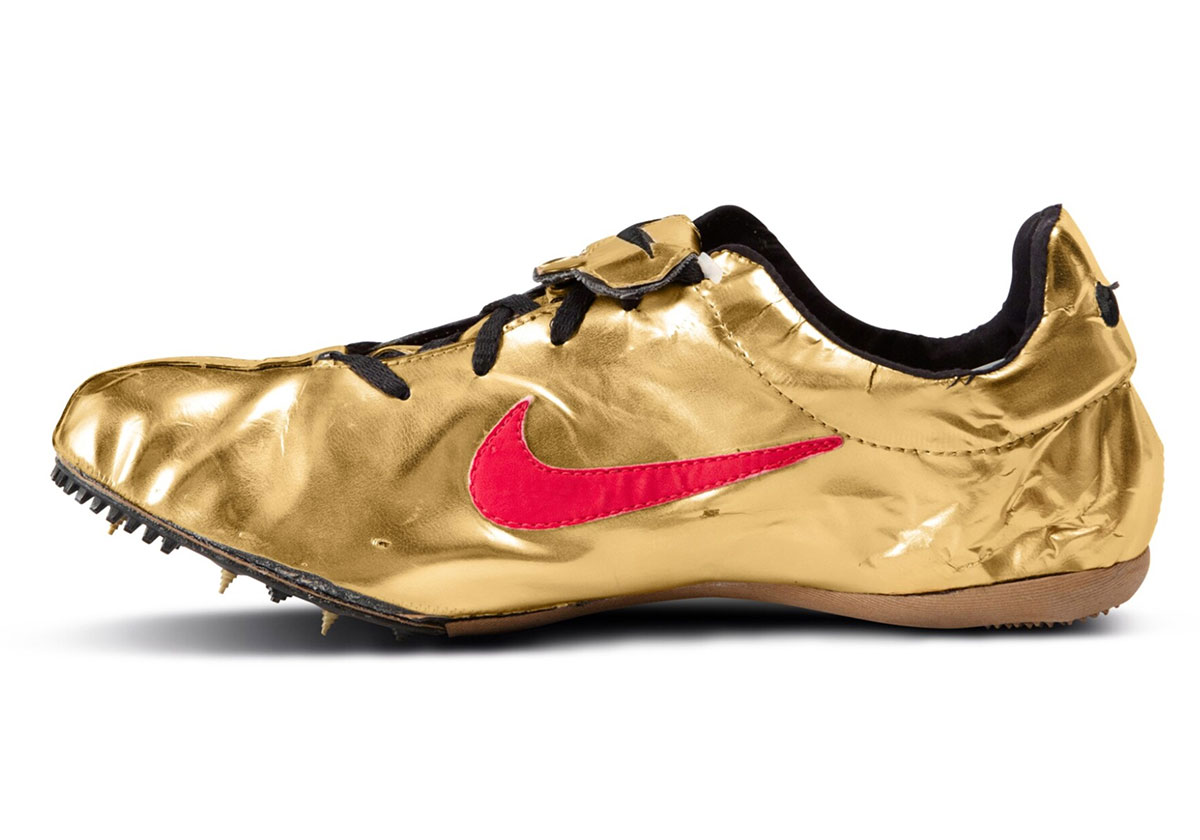
Although Johnson was the heavy favorite, it would’ve been a disaster for both invested parties if he somehow fell short. Thankfully for Nike, their risk paid off and Johnson’s golden shoes are among the most memorable moments in brand history. Truthfully, 1996 was rife with awesome Nike shoes at the Olympics, such as the Air Max Triax and the Air More Uptempo, but the gold spikes belong on its own tier.
4. Usain Bolt Becomes The Fastest Man Alive
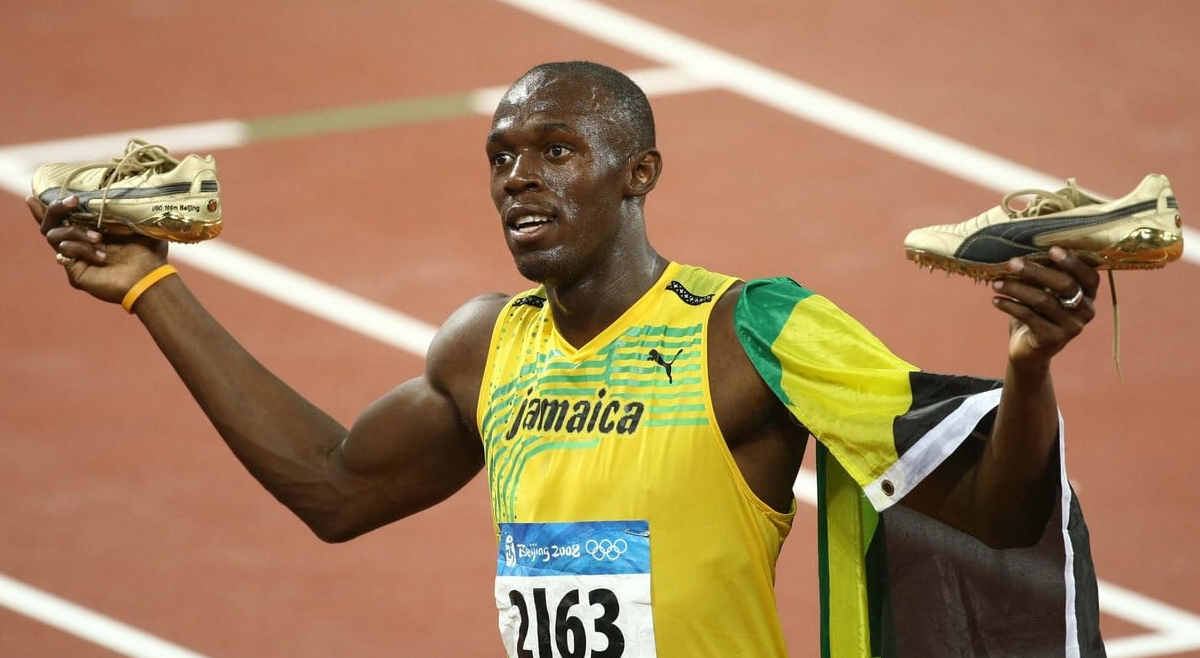
Nike had Michael Johnson, Puma had Usain Bolt. The German sportswear brand first began its relationship with Jamaican Athletics back in 2001, sponsoring Bolt when he was a young teen. In all came to a head when the runner earned the right to be called “The Fastest Man Alive” by earning the 100m and 200m with ease at the 2008 Olympics in Beijing, but it was truly an awesome moment for Puma to see the leaping cat going step for step with the legend from start to finish.
Although track spikes (Bolt wore the Complete Theseus II) aren’t a customary purchase for the public, PUMA did release a limited edition collection Olympic gear from July of October of that year; the most notable piece from that collection with an all-gold duffel bag that seemed to be in use at gyms and for fashionable purposes.
5. Michael Jordan Hides The Reebok Logo In Barcelona
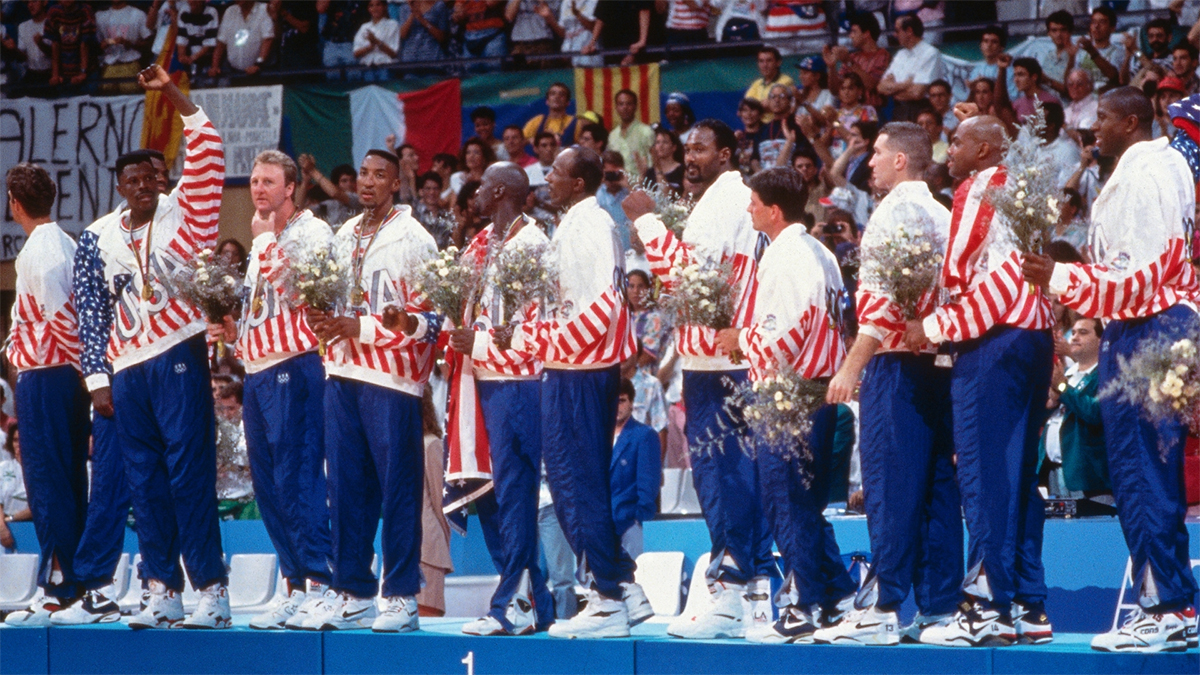
No team in basketball history, past, present, and future, will be as iconic as the 1992 Dream Team. The assembly of stars that Team USA put together in Barcelona represented the generation that made the NBA such a global phenomenon, setting the table for the stardom and fanfare of Team USAs of the future (not to mention, the hotels). Even with the all-time greats on the roster, Michael Jordan operated on his own plane of existence. The Last Dance documentary covered just how influential Jordan was in Olympic competition as it’s been insinuated that he was the reason why Isiah Thomas was left off the team.
The United States had zero competition in Barcelona, and they knew. It was basically a long European vacation for MJ and the boys as they easily whooped the opposing team sail ever needing a time-out. Jordan, of course, wore the Air Jordan 7 in an elegant Team USA execution that even saw the “23” on the heel swapped for the Olympic “9” jersey. But the most memorable moment of Jordan wearing the 7s didn’t come in a game, but on the podium when the red, white, and blue received their gold medals. Jordan famously covered the Reebok logo on the jacket with the American flag,
“They can’t hide it like I’m gonna hide it. They in for a big fucking surprise.”
6. Nike’s AlphaFly Running Shoe Almost Gets Banned
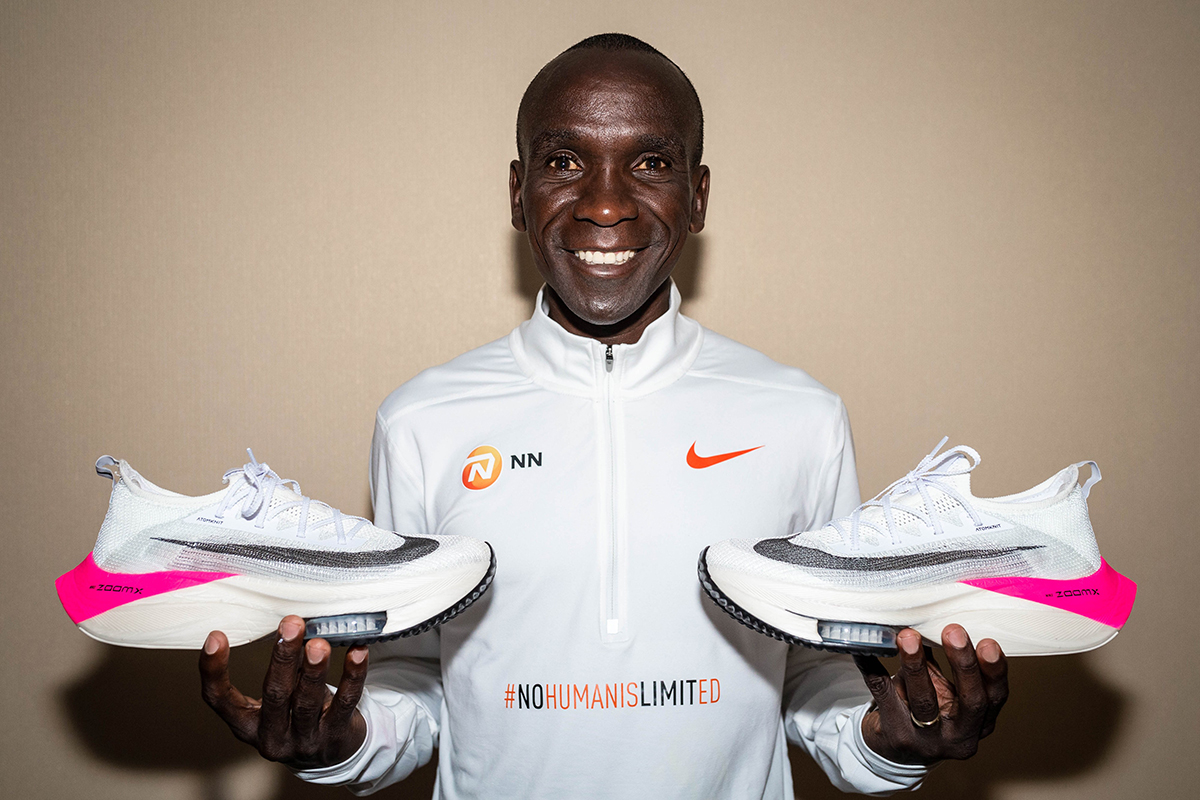
Right before the global COVID-19 lockdown, a controversial shoe that stirred up some beef in the running shoe biz. It all started at the Rio Olympics in 2016 when all the medalists for the marathon wore Nike — specifically an unreleased prototype that would become the foundation of the revolutionary Vaporfly series. Since its introduction to market in 2017, Nike runners were posting drastically lower marathon times, clearly showing that Nike’s claims of simply having a better running shoe were legit. Running shoe experts categorized the VaporFly and AlphaFly as “mechanical doping” for its ability to enhance performance.
It was pretty much an accept outcome that Nike-sponsored athletes would be the victors yet again at the 2020 Tokyo Game. That is, until World Athletics (the governing body of professional track and field) laid out new guidelines concerning shoes to be used in competition. Nike’s biggest opps rejoiced as these rules seemed to affect to eligibility of Nike’s upcoming carbon-plated ZoomX VaporFly NEXT% and yet-to-release AlphaFly NEXT%.
At first, these new guidelines seem to have disqualified Nike’s top shoes; the shoes needed a sole no thicker than 40mm, the shoe must not contain more than one rigid embedded plate, and the shoe must have been available for purchase at retail for four months before it could be used in competition. The two aforementioned models did end up being Olympics-legal, although World Athletics did ban the prototype pair that Eliud Kipchoge wore during his BREAKING2 ru. That didn’t stop the legend from taking home the gold medal at the 2020 Tokyo Games wearing the ZoomX VaporFly Next% 2.
Today, thick midsoles with embedded plates are now the norm, and the industry has Nike to thank for that.
7. Yuto Horigome Wins The First-Ever Olympic Gold Medal In Skateboarding
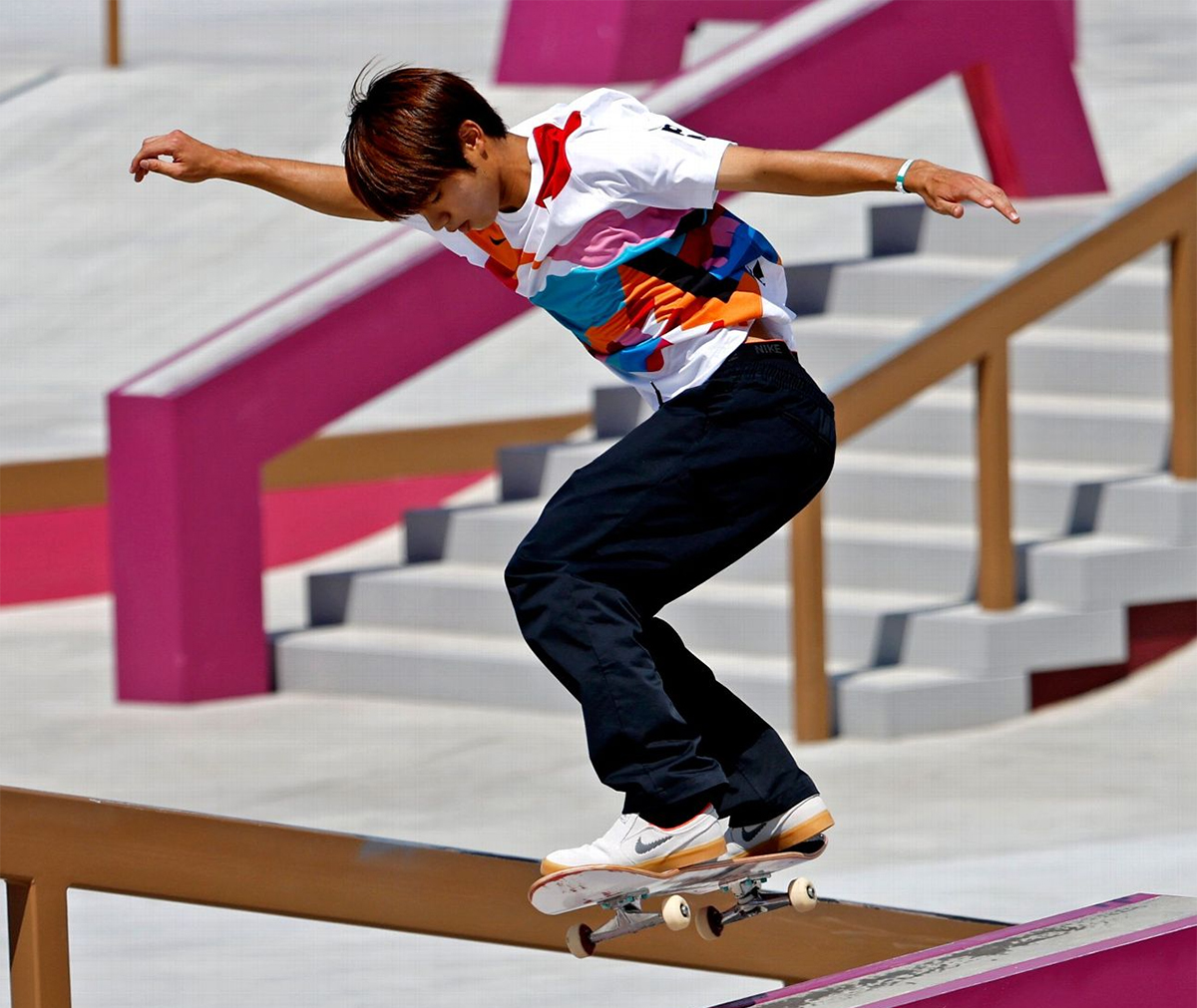
With the International Olympic Committee looking to compress the list of events for the upcoming 2020 Games, a short list that included skateboarding, baseball, softball, karate, surfing, and sport climbing were submitted for consideration. Just a few years later, skateboarding made its debut at the Olympics in the 2020 Games in Tokyo (in 2021), with star athlete Yuto Horigome winning the first-ever gold medal in the sport on the Olympic stage.
Throughout the events, Horigome wore a special Olympic-themed “Rawdacious” colorway of the Nike SB Janoski Slip-On. However, on the medal stand, Yuto wore a full ASICS head-to-toe fit as the Japanese brand was the official sponsor for its athletes. In the 2024 Games, Yuto Horigome once again took home the gold medal in the street event, doing so wearing his own Nike SB Dunk Low collaboration.
The inclusion of skateboarding in 2020 and breakdancing in 2024 shed light on how the Olympic Games continued to evolve towards more globally popular events. Wrestling, despite its history, was removed after the 2012 Games for its lack of popularity and profitability.
8. Volt Steals The Show
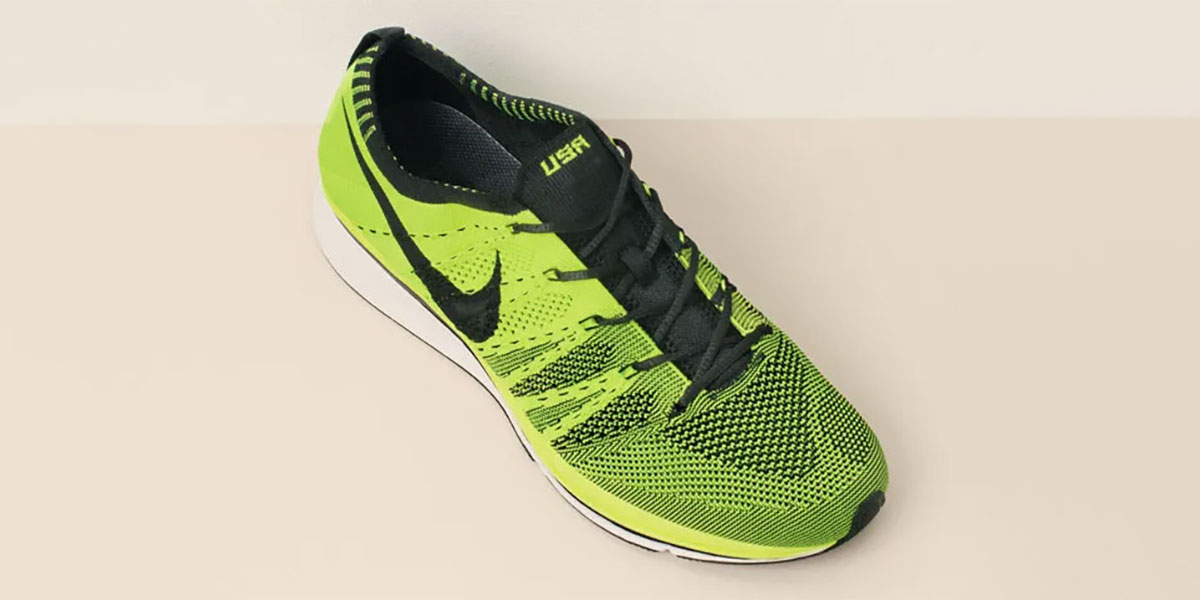
Remember those dots and streaks of Volt green that appeared on your screen in the 2012 Olympics? Here’s why you remember.
In 2012, adidas spent a whopping $150 million for exclusive rights to the London Games. This meant that not only the German brand was allowed to use the Olympics for marketing purposes, but competitors could not directly reference the Olympics for any marketing. They were allowed to outfit their sponsored athletes in their own gear.
So, Nike issued all of its sponsored athletes with volt green colored footwear as well as a pair of the all-new Flyknit Trainer that featured the state-of-the-art Flyknit technology on the upper. Nike athletes wore the shoes during the competition events, around the Olympic village, and on the medal stand (the pair above was issued only to athletes).
The sheer amount of attention, combined by the novel idea of a completely knit-uppered sneaker, helped Nike revolutionize the footwear industry with Flyknit. Every competitor of Nike’s ended up leaning into this new trend, and soon enough the market became flooded with stretchy knit-uppered sneakers.
